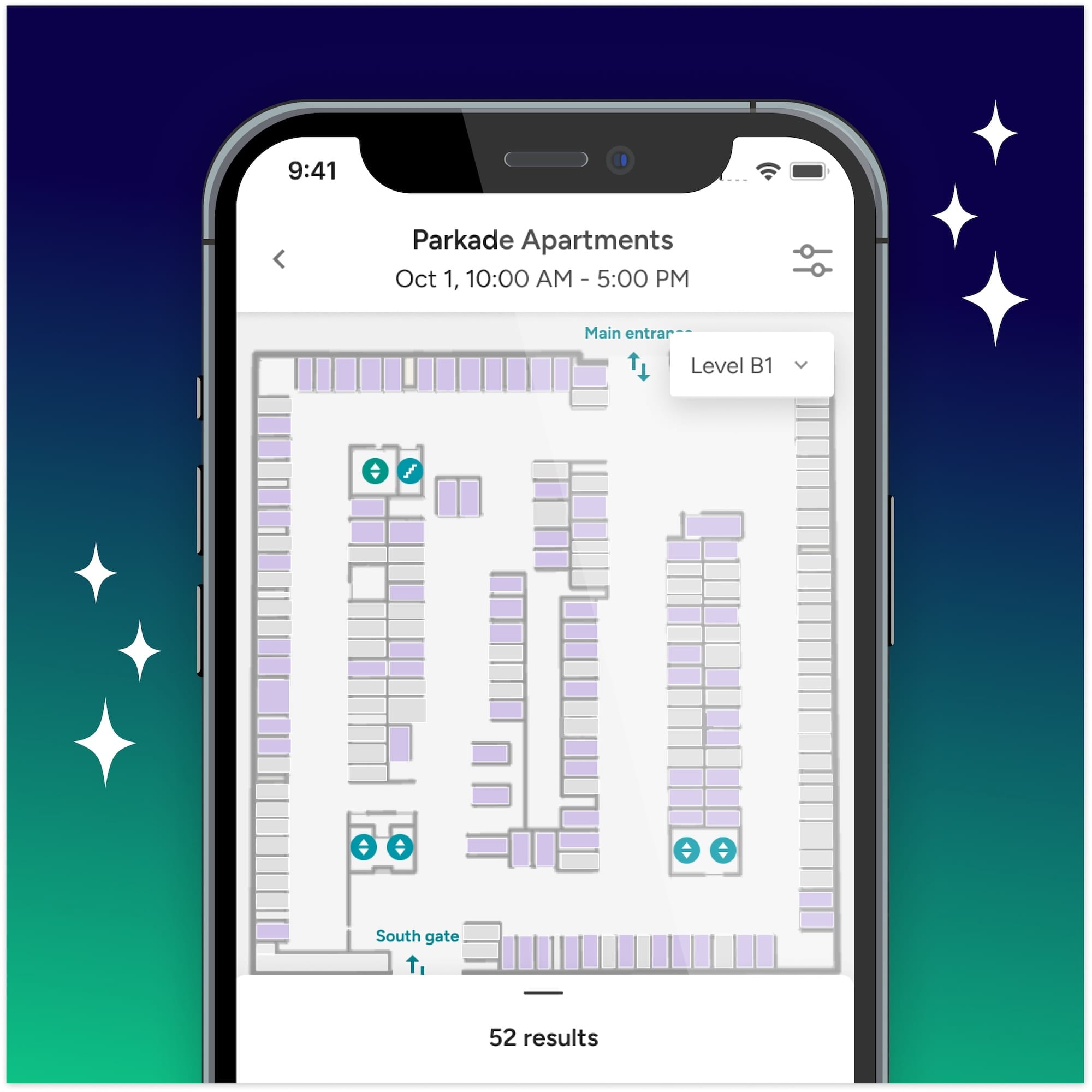

TABLE OF CONTENTS
Parkade was founded upon a goal: to modernize parking at multifamily buildings. And in 2024, we made some pretty big moves, launching several new features that have already transformed parking management for property teams and residents teams alike.
Each of these updates was designed to streamline operations, improve the user experience, and deliver more tangible value to property managers.
Payment flexibility is crucial for businesses. That’s why this year, we introduced ACH (Automated Clearing House) payments in partnership with Stripe. Now, residents can securely pay for parking directly from their bank accounts within the Parkade app.
There are several benefits to using ACH over credit card payments for residents, including a better user experience and lower fees. For property owners and managers, ACH reduces processing fees significantly. By steering residents toward bank payments, properties can collect parking revenue without losing a cut to credit card companies. It’s a win-win for everyone involved.

Managing unassigned parking can be a logistical headache, but our 2024 updates simplify the process significantly. Unassigned parking spots are now displayed more intuitively in the app, categorized by their features. Users no longer see redundant lists of identical options, and admins can easily label spots as “assigned” or “unassigned” during setup.
This is a clear win for user experience. With consolidated results, residents can more quickly book the spot they need rather than scrolling through a long list of similar spots.
From a management perspective, these changes reduce complexity and streamline inventory. Properties can now support hybrid lots with both assigned and unassigned spots, offering greater operational flexibility without sacrificing organization.

Parking isn’t one-size-fits-all, so we’ve introduced two options for residents booking monthly parking: firm and flexible reservations. Residents who commit to a 12-month plan benefit from a discounted rate, while those who prefer the ability to cancel at any time can choose a flexible option.
This feature caters to diverse resident needs. Those looking for a long-term solution can lock in savings, while others with less predictable parking needs have the freedom to pay for flexibility. It’s about giving residents the control to choose what works best for them.
For property managers, this feature represents a new revenue opportunity. Previously, flexibility may have been offered without charge; now, managers can monetize it by charging a premium, creating an additional revenue stream while still catering to tenant preferences.

Like building occupancy, parking demand often fluctuates in expected patterns. But any property manager will tell you: It’s not easy to align the price of parking with the peaks and troughs of demand…until now!
This year, our team launched event-based pricing as a powerful new tool for optimizing parking revenue. Property managers can now adjust prices dynamically based on demand, whether it’s for a one-time event like a concert or recurring trends such as seasonal peaks.
Dynamic pricing ensures availability during high-demand periods while offering cost savings during low-demand times. It’s a balanced approach that benefits both users seeking affordability and those looking for convenience during peak events.

Finally, we are pleased to have rolled out the most-requested feature from property teams: PMS integration.
One of our main goals at Parkade is to eliminate manual work without sacrificing the quality of your data. This update makes that possible. For properties using Entrata, Real Page, or Yardi, data from Parkade is automatically synced with residents’ PMS data, eliminating the need for manual record-keeping.
Parkade can now import a real-time list of active tenants and associate them with the appropriate units in our system, making Parkade the central system of record for parking, handling everything from tenant access to parking payments—all without manual updates. In short, Parkade can become an even more integrated part of your overall property management operations.
The benefits extend to users, too. Access to Parkade is granted within hours of signing a lease, eliminating the need to manually create accounts or wait for approvals.

2024 was a big year for Parkade. We focused on making parking easier, improving payment options, and giving property managers better tools to manage revenue. Each feature was built with residents and property teams in mind, and we’re proud of the progress we’ve made.
We’re excited to keep improving and bringing even more helpful parking features to communities around the world. Thanks for being part of the ride—there’s more to come in 2025!
.jpg)
As parking management becomes increasingly digital, security becomes critical — and we’re excited to share that we've achieved a major security milestone.
Read Story
We’re thrilled to announce one of our most significant leaps forward this year: the launch of dynamic maps across our mobile and web applications.
Read Story
Now that AB 1317 is official, it’s time to brush up on the requirements and see how your properties stand to benefit.
Read Story